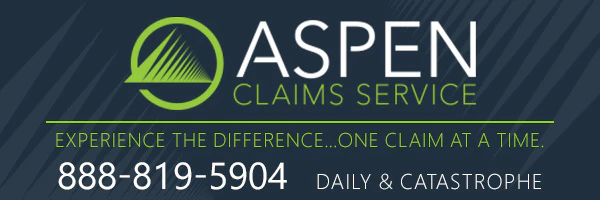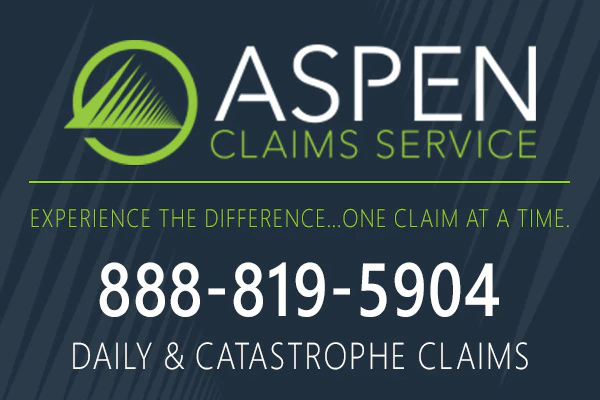
Collaborating with Law Enforcement and Investigators
Monday, September 30th, 2024 Claims Pages Staff Proactive Fraud Detection Strategies for Claims AdjustersFraud detection is rarely an isolated effort. While claims adjusters play a critical role in identifying potential fraud, their success often depends on the strength of their partnerships with external agencies like law enforcement, private investigators, and regulatory bodies. Combating fraud requires a collaborative approach where information is shared, resources are pooled, and investigations are conducted jointly.
This article explores how claims professionals can build strong partnerships with these agencies and outlines best practices for leveraging external expertise to uncover fraudulent claims.
The Need for External Collaboration
Insurance fraud cases can be complex and wide-reaching, involving multiple individuals, fraudulent networks, or even organized crime. In these situations, claims adjusters may not have all the tools, legal authority, or investigative power necessary to fully uncover fraudulent activity. That’s where collaboration with law enforcement and professional investigators becomes essential.
Why collaboration matters:
Broader resources: Law enforcement agencies and private investigators have access to resources and databases that are unavailable to insurance companies, such as criminal records, financial documents, and surveillance data.
Legal authority: Law enforcement officers have the authority to carry out search warrants, subpoena documents, and conduct interviews that adjusters cannot legally perform on their own.
Expertise in criminal investigations: Fraud is not just a violation of an insurance policy—it’s often a crime. Partnering with investigators who specialize in criminal fraud brings a wealth of knowledge in handling fraudulent schemes and working within the legal framework.
Establishing Effective Communication
The cornerstone of successful collaboration with external agencies is effective communication. Claims adjusters must learn how to relay pertinent information to law enforcement or investigators while adhering to the necessary privacy and regulatory requirements.
Here are key points to consider when establishing communication with external agencies:
- Clear reporting: When a case of suspected fraud is identified, ensure that all supporting documentation is well-organized and accessible. Law enforcement needs clear, factual evidence to move forward with their investigation.
- Confidentiality: Fraud investigations often involve sensitive data, including personal information and financial records. Make sure to work within legal privacy frameworks (such as HIPAA or GDPR) to ensure data is shared responsibly.
- Regular updates: Maintain an open line of communication throughout the investigation process. Regular check-ins help keep everyone informed and ensure the investigation remains on track.
Working with Law Enforcement
Collaborating with law enforcement is a critical aspect of addressing larger, more organized fraud operations. Law enforcement agencies, such as local police, the FBI, or specialized task forces, have extensive experience investigating criminal activity, including fraud. Engaging these agencies early can ensure that investigations move forward effectively.
Here’s how claims adjusters can work closely with law enforcement:
1. Contact early: When fraud is suspected on a larger scale or involves multiple parties, reaching out to law enforcement early in the process is essential. Quick action helps preserve evidence and prevent the fraudsters from further manipulating the system.
2. Provide detailed evidence: Law enforcement officers require strong, well-documented evidence to proceed with a case. Claims adjusters should submit thorough, accurate reports, complete with documents, interviews, timelines, and other relevant details.
3. Work within the legal process: Law enforcement operates under strict legal guidelines. Understand that their investigations may take time, as they need to gather sufficient evidence to build a solid case.
Partnering with Private Investigators
In cases where law enforcement may not be the best fit, private investigators are another valuable resource. Private investigators often specialize in insurance fraud and bring specific expertise to the table. Many insurance companies already have relationships with investigative firms, but if you don’t, it’s important to build those connections.
Best practices for working with private investigators:
- Select the right investigator: Ensure that the investigator has experience in insurance fraud and understands the unique challenges adjusters face. Look for licensed, reputable professionals who can demonstrate past successes.
- Collaborate on surveillance: Private investigators can gather evidence through surveillance, social media analysis, and interviews with witnesses. Work with them to target high-risk claims and gather intelligence.
- Share insights: Private investigators often have industry-specific knowledge about local fraud trends, which can be incredibly valuable for adjusters. Leverage their expertise to build a stronger fraud detection program.
Leveraging Other Agencies and Resources
Beyond law enforcement and private investigators, adjusters should also consider collaboration with regulatory agencies, legal professionals, and even other insurers. These partnerships can help uncover patterns of fraud across regions, provide legal advice on complex cases, or simply offer additional resources during investigations.
National Insurance Crime Bureau (NICB): This non-profit organization partners with insurers and law enforcement to fight fraud. The NICB provides support in investigating, reporting, and prosecuting fraudulent claims.
State Fraud Bureaus: Many states have specialized fraud bureaus that focus on insurance fraud. These agencies can assist in coordinating investigations and sharing resources.
Conclusion: Stronger Together
Fraud detection is far more effective when claims adjusters collaborate with external experts. Whether it’s working with law enforcement to crack down on organized fraud rings or partnering with private investigators for focused surveillance, these partnerships provide invaluable resources in uncovering fraudulent claims.
By building strong relationships with external agencies, maintaining open communication, and leveraging their expertise, claims professionals can dramatically enhance their ability to detect and combat fraud. In the fight against fraud, collaboration isn’t just a strategy—it’s a necessity.
Fraud detection is an ongoing battle in the insurance industry, but with the right strategies, claims adjusters can significantly reduce the risks. Our series, "Proactive Fraud Detection Strategies for Claims Adjusters," is packed with expert advice and practical tools to help you stay ahead. From understanding common fraud schemes to utilizing the latest technology, our series will empower you to improve your fraud detection capabilities and ensure your claims process is both secure and efficient.

